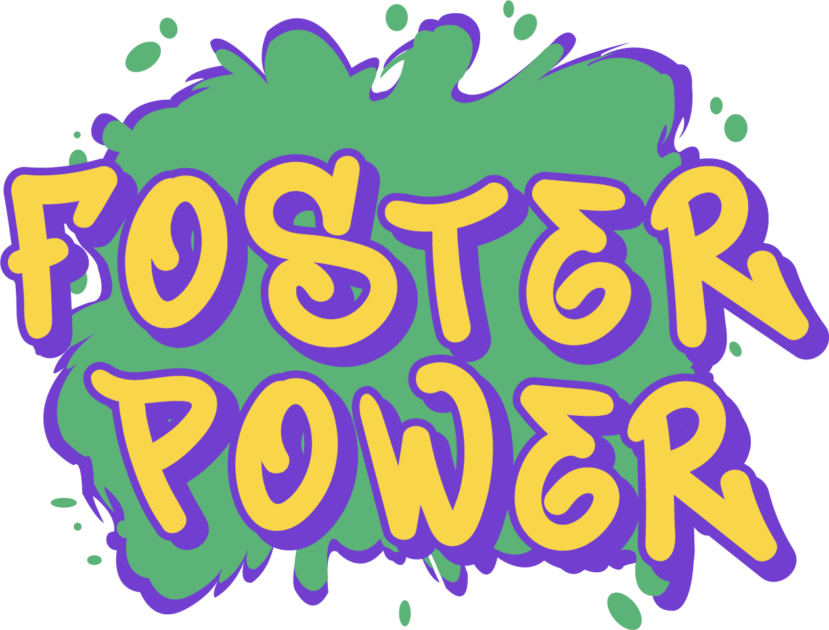- APPLA – Another Planned Permanency Living Arrangement:
- AAL-Attorney ad litem
- Assent
- Caregiver
- Case Plan/Transition Plan
- Case Manager
- CBC – Community-Based Care
- Confidentiality
- Consent
- DCF – Department of Children and Families
- Fee Waiver
- Foster care allowance
- GAL – Guardian ad Litem
- IEP – Individualized Education Program
- Judicial Review
- Master Trust account
- Medical Consenter
- Normalcy
- Ombudsman
- Parent Surrogate/Educational Surrogate
- Permanent Guardianship
- Personal allowance
- Placement
- Psychotropic Medication
- Social Security Administration (SSA) Survivor Benefits
- Supplemental Security Income (SSI) Benefits
- Staffing
- TPR – Termination of Parental Rights
- Tuition Waiver
- Sources
APPLA – Another Planned Permanency Living Arrangement:
This is a case plan goal that means you are preparing to turn 18 in foster care. This means you have not been reunified, adopted, or placed with a permanent guardian and would begin to look at your options such as extended foster care once you turn 18.
AAL-Attorney ad litem
An attorney appointed by the court to provide you with legal representation and advocate for your express interest. The court can appoint an attorney for any reason, but the court MUST appoint an attorney if you fit one of the following categories[1]:
- You are in a nursing home or may be placed in a nursing home
- You are prescribed psychotropic medication and do not agree to take it
- You have a developmental disability
- You are placed in a residential treatment center or may be placed in one
- You are a victim of human trafficking
Assent
Giving “assent” means that you are aware of your condition and are willing to agree and take part in the doctor’s treatment plan.[2] An example would be if you had a broken arm, your doctor explained your arm was broken and that the treatment was getting a cast, and you understood this and agreed to get a cast so your arm could heal.
Caregiver
Every child in foster care has a caregiver. If you are in a group home, the staff member who takes care of you and makes decisions for you is the caregiver. In a foster home, your caregiver is your foster parent.
Case Plan/Transition Plan
A written plan that gives tasks for parents to complete in order to be reunified with their children. A separate case plan/transition is created once a child is 14 to focus on independent living skills for that child.
Case Manager
This is the person who will meet with you each month and make sure your needs are being met and will also work with your parents to help them get the services they need if they are working on a reunification case plan
CBC – Community-Based Care
This agency is contracted with the Department of Children and Families to provide child welfare services in the community. There are 17 CBCs in Florida
Confidentiality
the right to keep what you say between you and another person private. For example: you have confidentiality with your therapist, your doctor, and your lawyer (if you have one).
Consent
understanding what you are being told, being aware of outcomes and other options, and making the choice to agree. Legally, those under 18 cannot provide consent in most cases and a parent or guardian will be the one giving consent. An example where consent is needed would be if you had to get a tooth removed and you needed to be sedated during the procedure. In this case, the doctor would need your parent or another adult that is legally allowed to make medical decisions for you to agree to the sedation. Even if you agree to get the tooth removed, legally you cannot consent to the procedure until you turn 18, so an adult would need to consent for you.
DCF – Department of Children and Families
The state agency in charge of providing social services to children and families in Florida
Fee Waiver
A request made to ask the state to use the money in your master trust account for something you want/need.[3] Examples could be a sport, a laptop, clothing, or a hobby and more.
Foster care allowance
the money your foster parent gets each month to use for your personal needs or to give to you for you to spend or save[4]
GAL – Guardian ad Litem
A person appointed by the court to advocate for your best interest.
IEP – Individualized Education Program
An IEP explains the special education services and supports you must get in school if you have a disability to help you learn and thrive in school
Judicial Review
A court hearing where the court reviews how the case is going. The hearings happen every six months and the court will review if the parents are working on their case plan and how you and your siblings if you have any are doing and if there is anything you need.
Master Trust account
a Master Trust account is an account that DCF uses to manage your money while you are in their care.
Medical Consenter
a person who is allowed to make decisions about the medical care you may need. This person may be a foster parent, a case worker/manager, a relative, or your parent.[5] In most cases. a doctor may not treat you unless your medical consenter is there and has approved the treatment.[6] This person will be able to make medical choices for you, unless you need extraordinary (more serious) medical care and treatment. If this happens, or if your consenter is not willing or able to provide consent, a court order is needed.[7] An example of treatment that may need a court order is surgery or any treatment where sedation is needed.
Normalcy
A way for you to have the same opportunities as other people your age while in foster care. This means you have the right to do things that are typical of other kids your age like joining a sport or school club, seeing friends, starting hobbies, etc.
Ombudsman
A person who works in the office of DCF who you can report any complaints/concerns you have about your experience in foster care
Parent Surrogate/Educational Surrogate
An adult picked by the court who makes educational decisions for you in school when you have a disability and do not have a parent or foster parent available to make those decisions
Permanent Guardianship
A permanent guardianship is when an adult or adults agree to be your guardian until you are an adult. This means you would live with them and they would take care of all of your needs like a parent.
Personal allowance
Money that is set aside in your Master Trust account (if you have one) that you may spend or save.[8]
Placement
This is the place where you will live when you are removed from your home. Your placement can chan during ge your time in foster care.
Psychotropic Medication
Medication prescribed by your doctor that can change the behavior, mood, or thoughts
Social Security Administration (SSA) Survivor Benefits
survivor benefits are payments a child or widow will get each month after the husband/wife or parent/caregiver dies. This comes from the money the person made when he or she was alive. For every paycheck from a job, some of that money is taken out and saved by the federal government. This money becomes available to the person once they retire from work, but if they die, that money will go to their husband or wife and children.
Supplemental Security Income (SSI) Benefits
SSI is a program that gives money to help support persons who are older, blind, or disabled and have a limited income.
Staffing
A meeting that usually includes the case manager, the GAL and/or AAL, the parents, and the children if they are old enough to discuss the progress of the case.
TPR – Termination of Parental Rights
When the court determines you cannot ever safely return home so the state ends the legal relationship between you and your parent(s)
Tuition Waiver
A tuition waiver allows you to attend college or a trade school without paying any fees or tuition. You qualify for a tuition waiver if you were adopted, placed in a permanent guardianship, turned 18 while still in foster care, or were reunified after age 14 and spent at least 18 months in foster care
Sources
[1] Fla Stat Sec 39.01305
[2] Fla. Admin. Code 65C-35.001(1)
[3] Fla. Admin. Code 65C-17.005.
[4] Fla. Admin. Code 65C-17.002(6).
[5] Fla. Stat. sec. 39.407(2)(a)
[6] Fla. Stat. sec. 766.103
[7] Fla. Stat. sec. 984.19(2); Fla. Stat. § 39.407(2)(a)2
[8] Fla. Admin. Code 65C-17.002(9).

